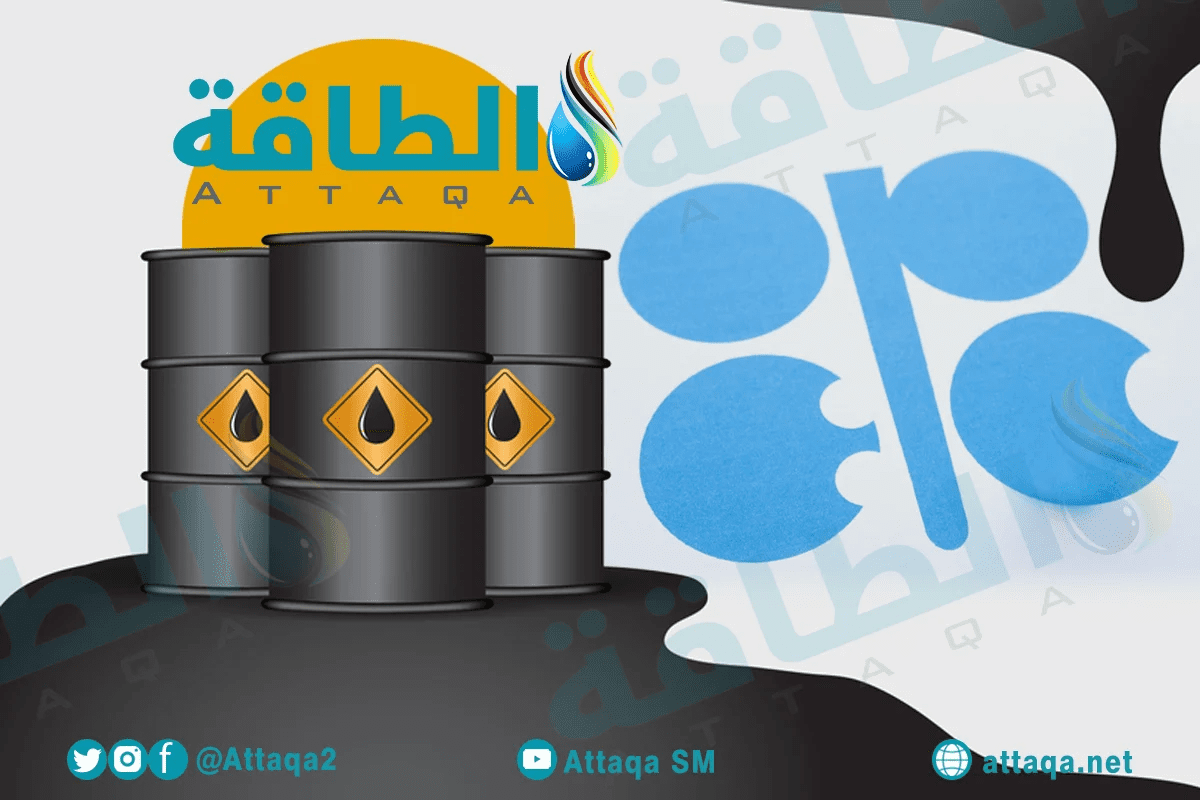OPEC + agreed to stabilize the policy of reducing production without change in 2023, in addition to amending the base month through which oil quotas and compliance in the alliance are calculated starting next year, during the ministerial meeting held today, Sunday (June 4, 2023), after Several rounds throughout the day in order to reach an agreement.
The coalition announced – in a statement seen by the specialized energy platform – that total oil production levels have been adjusted to 40.46 million barrels per day, starting from January 1, 2024, until December 31, 2024.
In a separate official statement, Saudi Arabia announced the extension of its voluntary reduction in oil production by 500,000 barrels per day until the end of 2024, in agreement with the OPEC + alliance.
The Kingdom of Saudi Arabia and 8 other countries in the coalition had announced an additional voluntary reduction of a total of 1.66 million barrels per day, in the period from May 2023 until the end of this year (2023), in addition to a reduction of two million barrels per day in the period from November 2022. until the end of the year.
Private sources revealed to the energy platform that Saudi Arabia did not put forward the idea of implementing a new voluntary cut in oil production. And that the coalition ministers settled on giving the current cuts (announced in April 2023) an opportunity to see the extent of their impact on the market.
The OPEC + alliance decided to hold the next ministerial meeting on November 26, 2023.
Expectations of the OPEC + meeting
The senior advisor on foreign policy and energy geopolitics, Omod Shukri, had stated, earlier, to the specialized energy platform, that a decline in oil prices to $ 75 a barrel may lead to stimulating discussions within OPEC + about adjusting production levels to manage the market.
Shukri stressed that the coalition has historically taken decisions regarding oil production cuts or increases. in response to various factors; Including market conditions and supply and demand dynamics.
While the founder of the “Vanda Insights” Center on Energy Markets, Vandana Hari, explained that the OPEC + alliance may formalize voluntary cuts by 9 of its members, at the next meeting.
Paul Hicken, editor-in-chief of the Petroleum Economist platform, said that the most likely scenario is for the OPEC + alliance to convert the voluntary cuts into a more formal agreement to improve credibility and accountability, indicating that there may be some modifications in the deal to integrate the broader group.
And the head of the American Rapidan Energy company, Bob McNally, told the specialized energy platform that it is likely that a small subset of OPEC + members will cut oil production, after the voluntary reduction announced by 9 member countries last April.
Increase global refining capacity
In a related context, OPEC Secretary General Haitham Al-Ghais stressed the importance of enhancing refining capacity globally. To meet the growing demand for petroleum products.
Al-Ghais’s statements came at the 13th technical meeting of OPEC and non-OPEC countries participating in the Declaration of Cooperation, according to what was stated in a press release issued by the organization on June 1, 2023, and reviewed by the specialized energy platform.
Al-Ghais praised the efforts of the OIC member states to expand their refining capacities, by establishing refineries. Such as the Al-Zour refinery in Kuwait, the Dangote refinery in Nigeria, and the Jazan refinery in the Kingdom of Saudi Arabia.
The Secretary-General also highlighted the importance of technical discussions between OPEC member countries and non-OPEC countries participating in the Declaration of Cooperation.
Oil demand growth
The Organization of the Petroleum Exporting Countries (OPEC) expected oil demand to grow by about 2.33 million barrels per day in the current year (2023), bringing the total to 101.90 million barrels per day, according to the monthly report issued by the organization on May 11.
The report indicated that oil demand in China is expected to grow by 800,000 barrels per day in 2023, compared to last month’s estimate of 760,000 barrels per day.
OPEC kept the growth forecast for oil supply from outside the organization at 1.43 million barrels per day in 2023, to reach 67.19 million barrels per day.
Oil supply growth will come from the United States, Brazil, Norway, Canada, Kazakhstan and Guyana, with lower production mainly from Russia, according to the report.
The following table – prepared by the specialized energy platform – shows the expectations of oil demand and supply in 2023:


Leave a Reply